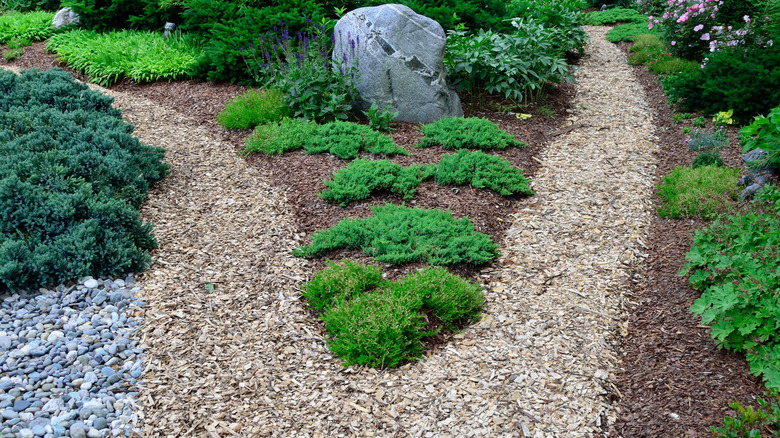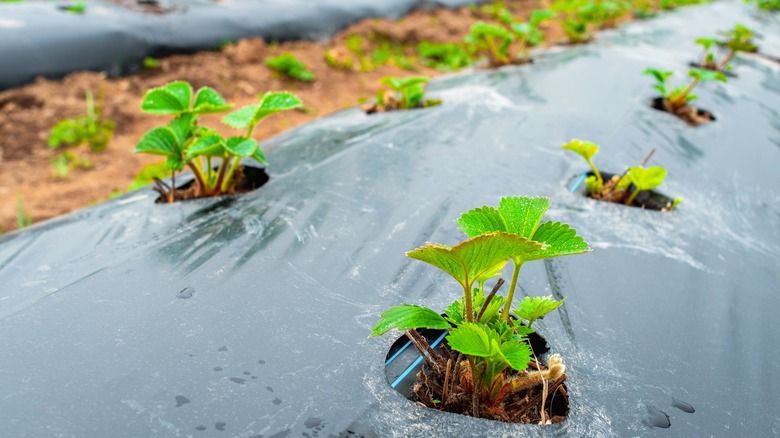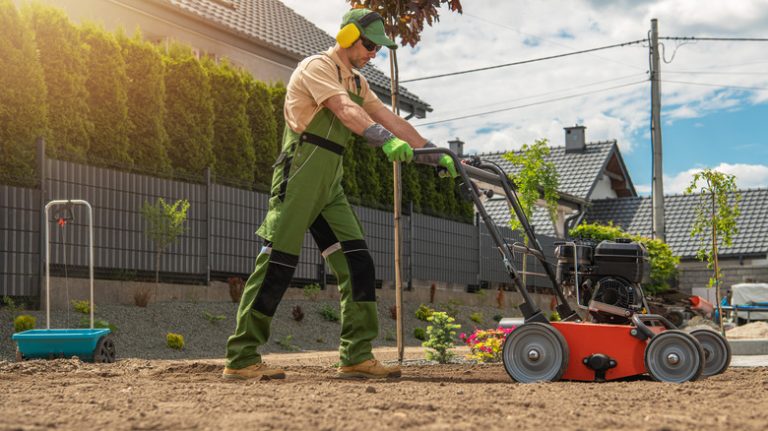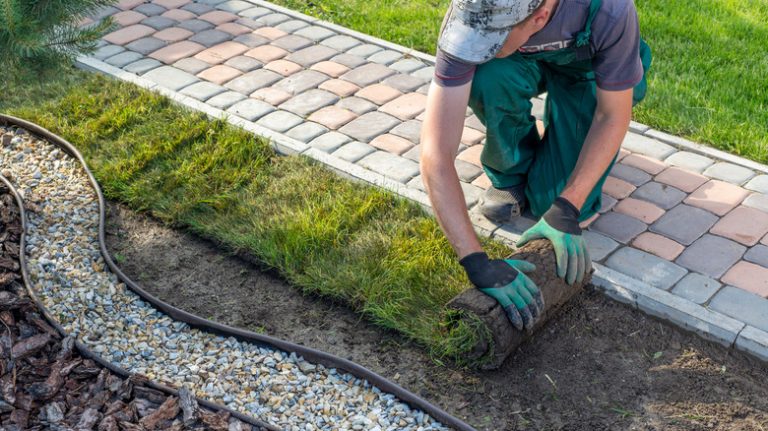If you have ever gone to a garden center and tried to determine what kind of mulch you need for your yard, you may have found yourself overwhelmed by the sheer number of different types available. Should you go with an organic mulch made of fertilizer or an inorganic mulch made of rubber? Ultimately, different kinds will serve different purposes in your garden — for example, organic mulch is a great option for fostering tree growth, while inorganic is ideal for preventing weeds.
If you have a variety of different growth areas in your yard, such as a vegetable garden and a flower patch, it may be worthwhile to learn about the differences in mulch options and determine which kinds are best suited for your growing purposes. It can also be helpful to consider logistical considerations, such as how frequently you’ll need to re-mulch your yard, and if your mulch choice will impact how much water your plants need.
Knowing which to choose

Organic mulch, on the whole, will provide more nutritional benefits for your plants than inorganic mulch would. It also helps keep your soil cooler by reducing evaporation, which can keep your soil hydrated longer and reduce the amount of water you have to use. Because it slowly decomposes over time, it continuously improves and replenishes your soil’s structure and nutrient levels.
Inorganic mulch, while it does not have the same nutritional properties as organic mulch, can still serve a purpose in your garden. Notably, it is much more effective at keeping out weeds. Unlike organic mulch, it does not decompose, so it will not need to be continuously replaced. It is much more low maintenance.
Ultimately, whether you use organic or inorganic mulch will come down to what you’re hoping to accomplish with your garden. If you’re hoping to nurture a large number of tasty vegetables or beautiful flowers — and you don’t mind putting in some additional work — organic mulch is probably your best bet. If you’re hoping for a low-maintenance yard that you won’t have to weed or keep pests out of, inorganic mulch is the choice for you. You can also use multiple kinds of mulch in different areas of your yard, depending on what each section will be used for. Inorganic mulch might be ideal for a xeriscaped parking strip, while organic mulch is better for a backyard veggie patch.
Differences between organic and inorganic mulch

The primary difference between organic and inorganic mulch lies in their names: organic mulch is comprised of organic material — typically plant material that was once alive or an animal byproduct (usually manure or another kind of animal waste). Inorganic mulch, on the other hand, is made from materials that were never alive nor associated with anything alive. These materials could be naturally occurring or manufactured and processed by humans.
Examples of organic mulch include bark, either originating from hardwood trees such as oak or softwood trees like pine; yard waste (also sometimes referred to as “green” waste), including leaves, grass clippings, and even chopped-up trees; animal manure, usually from livestock such as cows, horses, or chickens; compost from vegetable and kitchen scraps; and newspaper (which may seem weird, but remember paper comes from trees!).
Inorganic mulch can be derived from stones and rocks; cloth, as is used in landscape fabric; plastic covering; and rubber, typically made from ground-up and shredded car tires.



